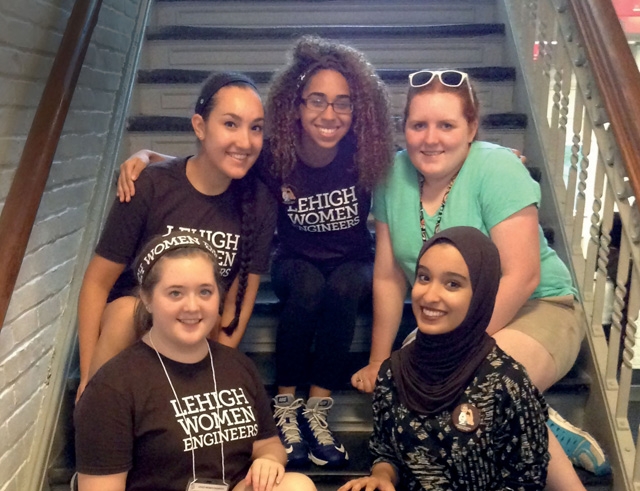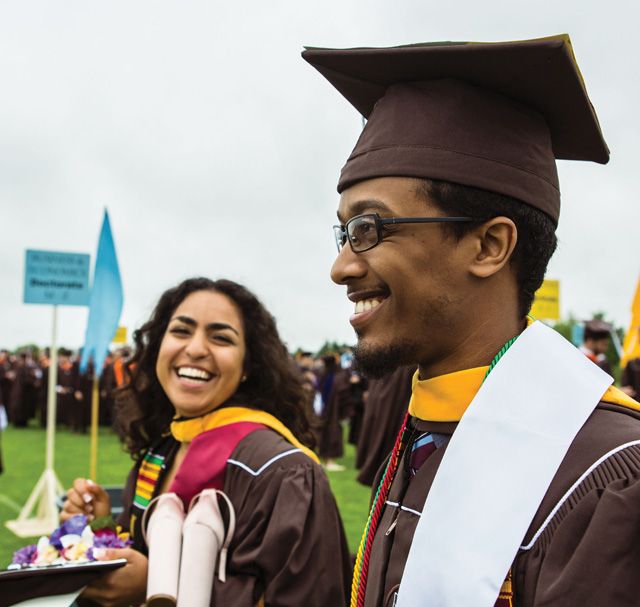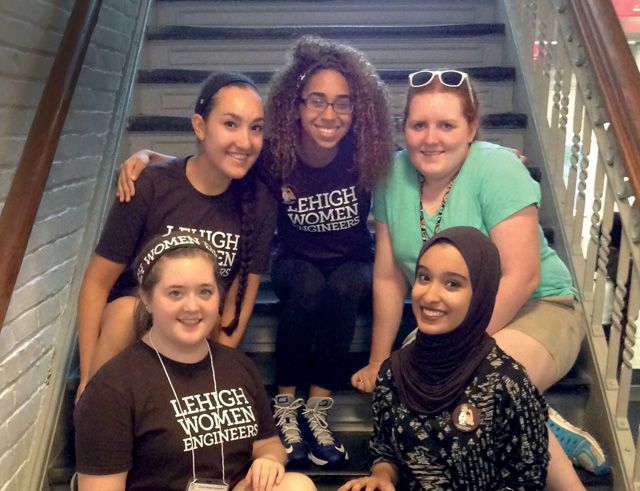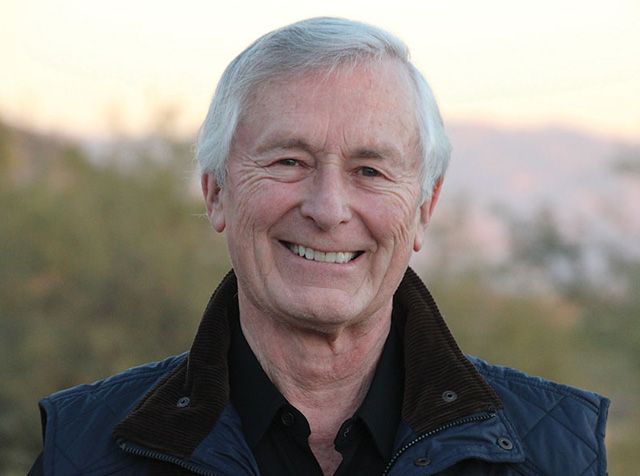
In her four years as a Lehigh engineering student and Greer Scholar, Kristen Mejia ’17 thought often of her parents.
“My mom’s from the Dominican Republic and my dad is from Honduras,” says Mejia. “They grew up living hard lives, and their stories about not having clean water always moved me. I feel privileged to be here.”
The Greer Scholars program in the P.C. Rossin College of Engineering and Applied Science supports students from underrepresented groups. Mejia, who received a $5,000 annual stipend, was one of six Greer Scholars to earn engineering degrees last spring.
“We’re all very supportive of one another despite being from different backgrounds,” Mejia says. “If I had gone to any other school I don’t know that I would have graduated in engineering, because the way I think about world’s problems is nontraditional.”
Mejia earned a B.S. in IDEAS (Integrated Degree in Engineering, Arts and Sciences), a program that allowed her to craft her own course of studies. She plans now to study public health and solve the kinds of water issues her parents experienced.
One of Mejia’s friends is fellow Greer graduate Bruke Mammo ‘17.
“We’re all doing wildly different things,” says Mammo, “and it’s amazing to see where we’re all going after graduation.” Mammo interned for Twitter after completing a B.S. in computer science and business (CSB) and returned to Lehigh in the fall to pursue an M.S. in computer science. He hopes to work in machine learning in Silicon Valley.
Now in its fourth year, the Greer Scholars program has 54 students, with another 15 to 20 freshmen expected to start in the fall.
“This program has really helped in terms of recruitment and retention of students of color,” says Henry Odi, vice provost for academic diversity.
Overall, the numbers of minorities and women in the Rossin College student body and faculty have increased, thanks to efforts including the Greer Scholars, ADVANCE, and CHOICESprograms, the Society of Women Engineers, and the Lehigh chapters of the National Society of Black Engineers and the Society of Hispanic Professional Engineers.
The ADVANCE program was launched in 2010 with a five-year grant from the National Science Foundation and is now supported by Lehigh. This collaboration between the ADVANCE Center and the Provost Office has led the Rossin College to think deeply about hiring practices for faculty, resulting in workshops for all search committees to ensure that searches for new faculty are conducted in ways that promote diverse groups of candidates. A typical search involves 100 to 200 candidates, says Ray Pearson, Professor, Materials Science and Engineering and Director of Lehigh's Center for Polymer Science and Engineering.
“We’re striving to have our faculty hiring pools reflect national demographics,” Pearson says.
The Rossin College has been hiring more women and taking concrete steps to retain them, says ADVANCE staff director Marci Levine.
“With programs like this, you risk creating a revolving door if the campus climate doesn’t change along with the hiring policies,” says Levine, “and we have seen a positive shift here at Lehigh. Retention is where we’re likely to see a bigger impact as we move forward.”
The college has created a support system for female faculty members, who meet monthly to discuss professional development, student mentoring, time management and work-life balance, said ADVANCE faculty director Kristen Jellison, associate professor of civil and environmental engineering.
“These meetings develop a sense of community among women faculty. We learn about the issues that are really important for women on our campus, which helps us focus our efforts in the right direction,” she says.
Mentoring programs for recently tenured associate professors and newly hired assistant professors keep the engineering school in touch with the faculty climate. Male faculty members act as “advocates” and “allies” to support their female peers.
“The men in these roles have been amazing,” Levine says.
“The ADVANCE grant (now known as the ADVANCE Center for Women Faculty in STEM) has done a great deal to help the College recruit and retain more women faculty,” says Odi, “but we are working hard to diversify our faculty racially.”
Pearson says that efforts toward diversifying the student body take many forms.
“There’s a curricular component,” he says. “Lehigh’s interdisciplinary approach in engineering, which gives rise to programs like IDEAS and CSB that combine modes of thinking, seems to naturally interest a more diverse set of young minds,” he says. “And of course programs like the Greer Scholars help make college an attainable goal, especially for first-generation students. But there are also steps we can take to inspire STEM pursuits long before the college essays are being written.”
One of these is the Rossin College’s longstanding CHOICES program, which encourages middle school girls to consider studying engineering or science through hands-on, challenging, team-based engineering projects.
During both the CHOICES weeklong summer camp and the daylong program in the spring, volunteers from Lehigh’s Society of Women Engineers (SWE) choose experiments, act as mentors, and arrange for panel discussions with professors and industry leaders.
By performing fun experiments, the middle schoolers learn the applications of some of each field’s basic disciplines. And by working with the SWE mentors, they get to see what women engineers look like.
“CHOICES demonstrates to girls that they can be anything they want to be,” says Lori Cirucci, who teaches science at Broughal Middle School in Bethlehem, Pa., and sends students to CHOICES each year. “My students recognize that engineering is very doable for them and not just a guy thing.”
Heather Schenk, a 2011 Lehigh engineering alumna and Air Products chemical engineer, volunteered with CHOICES as a student and returns to the university each year to help with the program.
“This is a valuable opportunity for women to experience engineering when they’re younger,” says Schenk. “Programs like CHOICES challenges stereotypes about engineers while giving girls the chance to see women engineers and imagine themselves in that role. I love coming back to these events and helping to make the girls super excited about the possibilities of engineering.”
Story by Manasee Wagh



